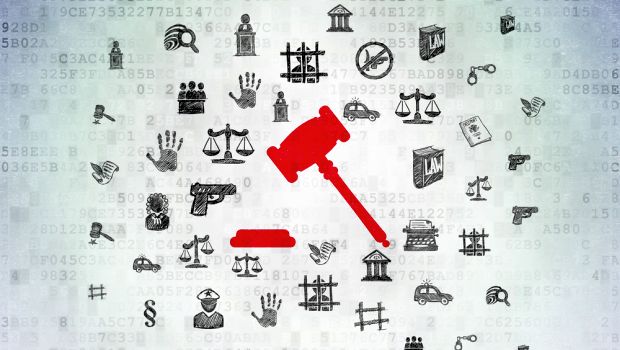As technology becomes a larger part of the self-storage world, not only must owners and managers adjust their operation to accommodate these changes, they must address related issues of legal compliance. Here’s how to stay within the law when using popular new tools such as e-mail, text messaging, electronic signatures, and online auctions and related advertising.

For seasoned self-storage veterans, walking around an industry tradeshow can be pretty eye-opening. Over the last few years, operators who were used to the brick-and-mortar simplicities of the business have witnessed a technological revolution. The list of advancements has lengthened as established vendors have created new tools and new entrepreneurs have entered the market with creative products, changing the way we do business.
As technology becomes a larger part of the self-storage world, not only must owners and managers adjust their operation to accommodate these changes, they must address related issues of legal compliance. Here’s how to stay within the confines of the law when using popular new tools.
E-Mail and Texting
E-mail and texting have facilitated the way we communicate with customers. Most significantly, they have reduced the delay inherent with snail-mail notification. Industry studies have confirmed these communication methods are considerably more efficient. Thus, delinquencies are down, and operators have a more effective way to contact tenants if there’s an emergency or other occurrence that may affect their goods in storage.
E-mail has become such a great way to contact tenants that many state laws have been amended to include it as an approved method of communication. More than 20 states now allow the use of e-mail as a notification method in the lien-sale process.
That said, because the use of e-mail as a “legal notice” was previously untested, many states also included a requirement that the facility operator receive verification of e-mail delivery to the tenant’s designated address. In turn, registered delivery services like those offered by RPost have become more commonplace. If an e-mail is proven to be undelivered to the tenant, the law requires a secondary notice be sent by mail to his physical address.
When it comes to texting, federal law requires the tenant give consent to receive texts, especially those that are automated. The easiest solution is to simply add a provision to the rental agreement permitting communication via text.
Electronic Contracts
Though remote and after-hours facility operation has been possible in the self-storage industry for a while thanks to various automation tools, we’re starting to see the integrated use of electronic contracts and signatures. Operators are increasingly adopting these technologies, allowing tenants to sign a lease and move into a facility via a kiosk or mobile device.
Products like DocuSign make this method of lease signing a breeze; and they’re completely legal. The Electronic Signature Act of 2000 codifies the legality of executing rental contracts by electronic or online signature. However, since the contract isn’t being signed in the presence of a store manager, the party executing the agreement must be given clear disclosures regarding the terms of the contract.
Online Advertising for Lien Sales
Although it’s been a slow transition from advertising lien sales in the newspaper to other methods of notice, the reality has hit home that people are more likely to search for self-storage auctions online than to review legal notices in the local paper. While only a handful of states have changed their laws to allow for this modification, more are open to the change, and the shift is expected to continue.
As many facility operators agree, the most successful auctions are those at which there are multiple bidders. Having numerous buyers enhances the potential that the final sale price will be enough to cure the tenant’s deficiency—perhaps even enough to warrant proceeds being sent back to the renter.
Some states permitting the use of online advertising for lien sales have added the legal requirement that the sale must be “commercially reasonable,” attended at least three independent bidders. In other words, the legislature measures the success of the ad by the number of people who participate in the auction.
Online Auctions
One of the most interesting evolutions in the self-storage industry has been the transition from live to virtual auctions. There are a growing number of websites where facility operators can post information and photos about delinquent units, expanding their universe of potential bidders from the few that might have attended a live auction to a much broader universe of online buyers.
Though about 10 states have modified their lien laws to specifically allow for online auction formats, there aren’t any that explicitly prohibit the use of an online format to accept bids. Even in states that require the sale be conducted on the premises, a buyer can place his bid online, and then visit the facility in person to complete the purchase. If you’re going to use an online platform, however, it’s essential to review and get comfortable with the site’s bid rules, as they govern the potential success of your lien sale.
With the outset of any operational changes, especially those derived from new technology, it’s inevitable that laws to support them will shortly follow. We’ve seen the legislature acknowledge the use of e-mail, electronic contracts, online advertising and online auctions in self-storage; but with legal approval comes the need for compliance. Facility operators must be cognizant of the statutory rules that apply when dealing with these technological advances.
Scott Zucker is a partner in the law firm Weissmann Zucker Euster Morochnik P.C. in Atlanta, which specializes in business litigation with an emphasis on real estate, landlord-tenant and construction law. Zucker is a frequent speaker at self-storage industry events, author of “Legal Topics in Self-storage: A Sourcebook for Owners and Managers,” and a partner in the Self-storage Legal Network, a subscription-based legal service for storage owners and managers. For more information, call 404.364.4626; e-mail [email protected]; visit www.wzlegal.com.
About the Author(s)
You May Also Like





